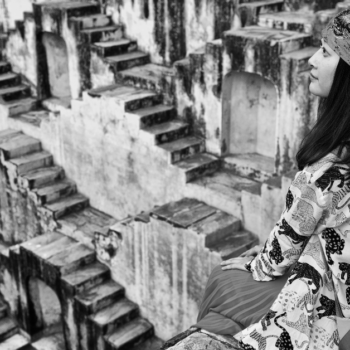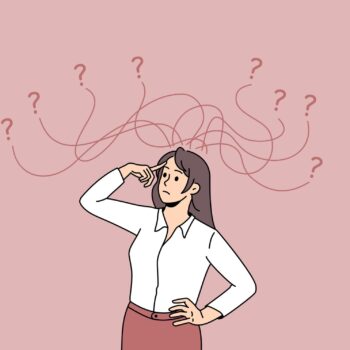The Unexpected Grief of the LGBTQIA+ Coming Out Experience
/ Understanding Grief : Litsa
We are so glad to welcome a guest author, grief counselor and former hospice chaplain, Rev. Anne-Marie Zanzal.
At fifty I made a major life change. I wrestled with something for my entire life, taking it out of the box on my compartmentalized shelf once in a while and then putting it away when the fear of making the necessary changes to my life became overwhelming. I went back to graduate school, married with four children, at forty-two in preparation for ordination, but also perhaps as a way to avoid the inevitable.
I was ordained in 2016 and three weeks later I finally took the box off the shelf and opened it for good. We do that don’t we? We keep ourselves busy so we cannot acknowledge truths in our lives, a challenging marriage, painful childhood memories, unhappiness in our job or that simply feel stuck. Sometimes when we complete a major life goal, our brains will finally let us ruminate on the thoughts we have neglected and suddenly everything comes sharply into focus. After a decade of wrestling with my sexuality, I finally came out as a lesbian to the LGBTQIA+ community.
People come to this journey all different ways and ages. Later in life is self-defined and it fits people as young as twenty-five to well over seventy. I was dimly aware that I might be gay, but I didn’t know how to acknowledge it because of many factors in my life. Others meet someone, called a catalyst, who opens up an awareness in them of this identity. Some people may identify as fluid, while other realize that it is more about gender than sexuality.
Coming out is a complicated process and for people who acknowledge their sexuality and/or gender later in life it is journey of self-discovery and excitement, but it is held in tandem with a grieving process that is equally intense. A common denominator all of us experience is that we leave our heteronormative identity behind and consequently many pieces of that life as well. To be very clear the choice is not whether we are members of the LGBTQIA+ family, the choice is to come out.
It was the third time I came out to my now ex-husband when I decided that I could no longer stay in this marriage. I knew I had to leave and it was the most painful six months of my life. I ruefully call it my fetal position phase because I knew I had to move forward, but I was too afraid to let go. Though I didn’t realize it then, I was experiencing intense anticipatory grief. Anticipatory grief is when we know things are going to change and we begin to grieve the loss before it actually happens. To acknowledge who I was as a person I would need to leave my marriage, which always had its own problems unrelated to my sexuality. More importantly, I knew this was going to forever change my family as it existed and this made me profoundly frightened and sad.
I found an online secret support group for other people who were coming out later and entered a world of people claiming their queer identities, excited and happy, but also struggling with so much chaos. As a hospice grief counselor I saw so many people suffering with almost too much loss to bear. Personally my moods were swinging wildly, I could neither eat or sleep, I cried for hours at a time. It was at about six months in when I finally realized that I was grieving this experience as well. What we can see in others, we often struggle to see in ourselves. I was a counselor who had never experienced profound grief, I had an intellectual awareness, knowledge and skill set, but I never had felt this difficult of a loss.
I experienced multiple disenfranchised losses (grieving something that is not publicly acknowledged or openly mourned). My first two losses were the identity in the world as a straight heteronormative woman and my family as it existed. My ex, although not partners and lovers as I am with my now fiancé, we had a friendship based on a mutual love for our family as a unit and our children.
I lost standing in my very heteronormative community as a married woman, to which anyone who was divorced can relate. My work identity. I was a chaplain and the public face of the hospice where I worked, the executive director no longer used me in this role when I came out. Ironically I did not have to grieve my church community like many of my LGBTQIA+ friends, the congregation was very supportive of this former associate pastor. But I grieved my relationship to religion and how in many ways it kept me in the closet for so long. I also struggled with my faith in God. I experienced ambiguous grief of a future that I imagined I was going to have and the past of a lesbian woman I did not. One thing I did not have to grieve was the loss of a catalyst which can be devastating in our community because that person is also the tie to our newly forming queer identity.
How did I cope? I used the secret online support group to process these intense feelings. I turned to my newly formed LGBTQIA+ community and received much support from friends. The common denominator all of us have experienced in the gay community is that we have all come out and most understand. I leaned on my divorced friends who understood that even if you want a divorce you still grieve the loss. I worked with a therapist and practiced meditation. I took medication for about a year which was helpful. I needed a floor under me so that my mood swings would not be so erratic. I took days off from work.
I knew that the only way to survive all this was to not go around these feelings, but through them. So I experienced each as they came up; I cried, I raged, I bargained and I accepted the losses. Then I did it all over again as the feelings morphed and change. In the beginning these feelings consumed me day and night, yet at the time I was also experiencing self-discovery, connection to “my people” and my new partner. Holding these experiences in tandem was both exhilarating and exhausting. As the first years slipped away, I noticed that the grief lessened, but still was present. I would recognize it when it showed up around significant days and holidays or unexpected memories, I knew it would only stay awhile so I would make space for its presence. I realized these multiple losses would be present for the rest of my life.
Like other communities bonded together by shared similar losses, there is a certain “knowing” in my later in life queer community of the struggle we have gone through to get to where we are now. In what is known as the “messy middle” we talk about the “other side” with a wistfulness of those who are in the midst of a tumultuous river of change and transition. When we land on the banks we realize it has forged us in ways we could have never imagined with seeds of compassion and empathy for other who experience the journey of grief.
Rev. Anne-Marie Zanzal is a chaplain, grief counselor and a coming out coach. She is a blogger, speaker, author and works with people coming out later in life in the LGBTQIA+ community. You can find her at www.annemariezanzal.com. She also admins a secret group for people coming out later in life. You can contact her at amzanzal@gmail.com for more information.
We wrote a book!
After writing online articles for What’s Your Grief
for over a decade, we finally wrote a tangible,
real-life book!
What’s Your Grief? Lists to Help you Through Any Loss is for people experiencing any type of loss. This book discusses some of the most common grief experiences and breaks down psychological concepts to help you understand your thoughts and emotions. It also shares useful coping tools, and helps the reader reflect on their unique relationship with grief and loss.
You can find What’s Your Grief? Lists to Help you Through Any Loss wherever you buy books:





Brett March 1, 2021 at 9:32 pm
I came out as bi this last summer at 48. I’d been in the closet all my life. My son came out as gay in time for Pride and I did not want to pretend to be a straight-but-accepting dad. I wanted to let him know he had an ally. When I told my wife she understood and accepted me but was uncomfortable with me coming out to friends and family. I lived out, including some cross dressing but not dating, while away from home and was in the closet at home. Fast forward to now and my wife has recently passed away from a disease that progressed fast but hadn’t even been diagnosed until last fall.
I’m now stuck back in the closet but only because I worry how my kids will perceive it and whether it will be seen as disrespecting their mom. I can dress as I like even if covid has made it so there are no clubs or parades or dates to look good for. But is it too soon to voluntarily introduce that upheaval into our home? I’m still bi but acting all straight because it’s comforting for my family.
I was dressed for my call with my gay father’s support group (who is used to seeing me like that) when my son wanted to chat so I spoke to him through the door. He knows I do this but has never seen me do it. I was afraid I’d upset his grieving recovery.
How soon is too soon to wear my earrings or a skirt at home? To step out to the grocery store dressed up? To put on my nail polish? To not be the dad my sons know when they can’t retreat to the comfort of their mother? I won’t date for a while but I want to express who I am in the meantime.
Cheryl February 21, 2021 at 3:24 pm
To Judith.
U are not alone in ur grief.
I lost my husband on May 13th 2020 He was in a home for dementia for 5 yrs. Two years after we renewed our vows. He was a great guy and husband and father. We were married on July 4 1964
I miss him more each day, but my faith is getting me thru. I pray that u and yours will experience God’s
peace. It is a lonely journey for sure, but we can get thru. It never goes away but it becomes part of who we are and the terrible pain can lessen. I also lost
a 27 yr old son in 1996. I have 2 saints in heaven. GOD BLESS…CHERYL
Judith Cohen February 6, 2021 at 6:55 pm
I lost my husband of 50 years , tommorrow it will be a month, my grief is over powering at times, he died of cancer of the prostate on a ventilator. It was a very good marriage filled with love.